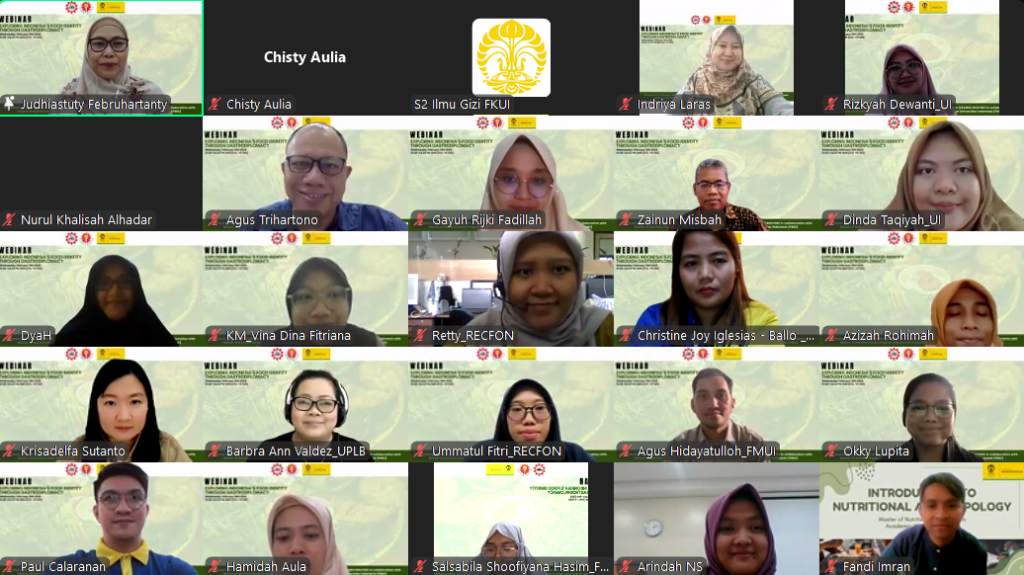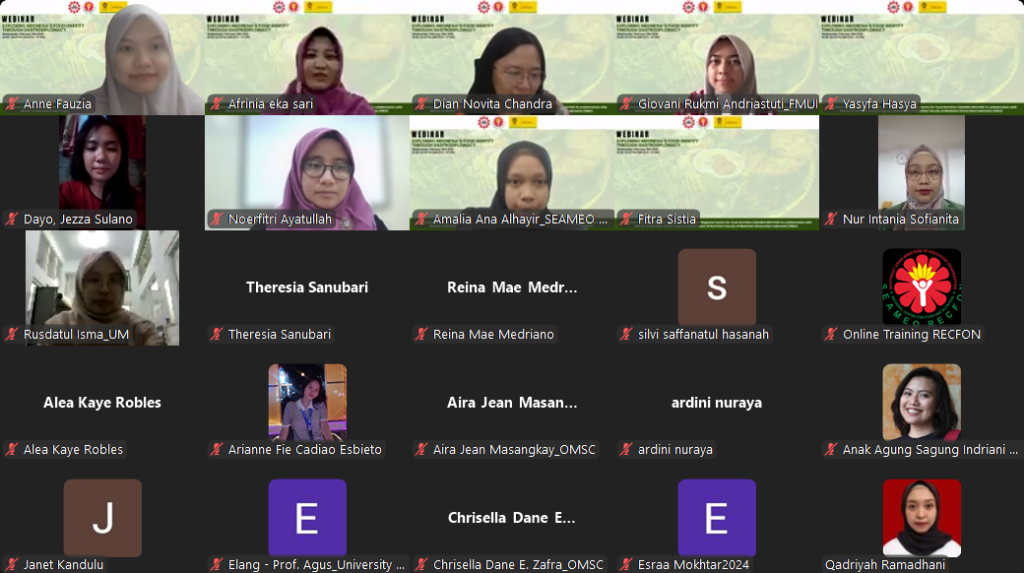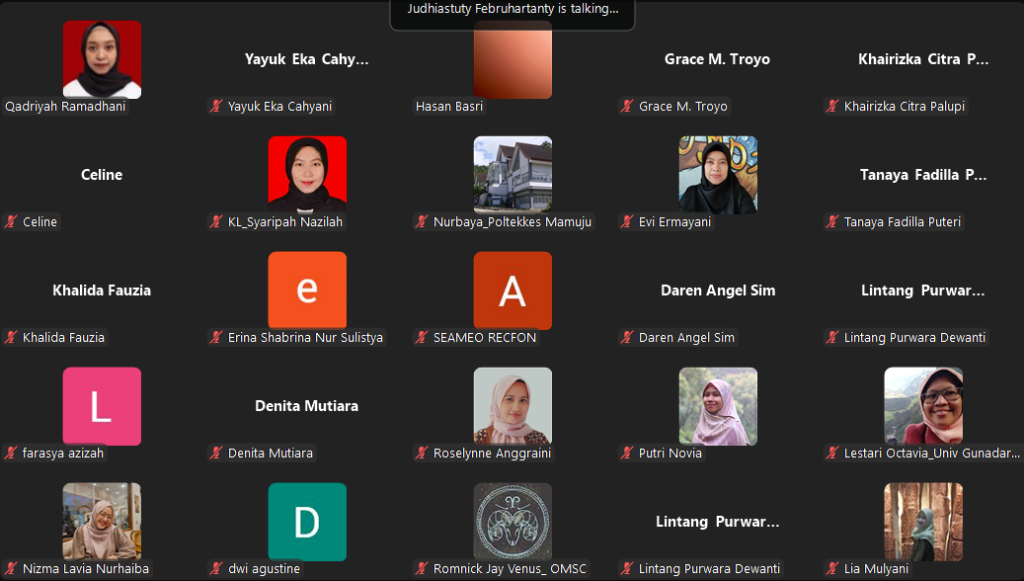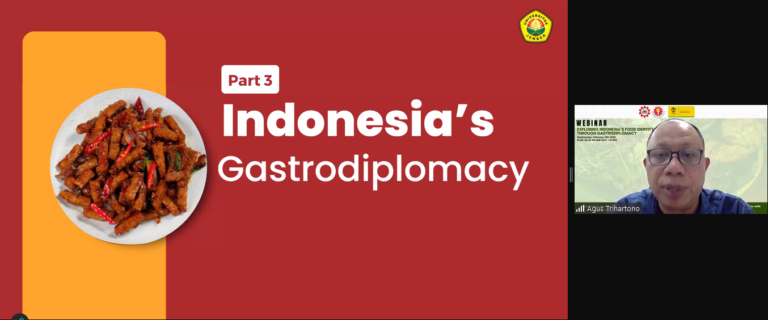SEAMEO RECFON, in collaboration with the Master of Nutrition Study Program, Department of Nutrition, Faculty of Medicine, Universitas Indonesia organized a webinar “Exploring Indonesia’s Food Identity Through Gastrodiplomacy” on 19 February 2025. The event was held online and attended by approximately 130 participants from Indonesia, Philippines, Egypt, Malawi, Myanmar, and Timor-Leste.
The webinar was officially opened by Dr. Zainun Misbah, M.Sc., Deputy Director for Administration of SEAMEO RECFON. In his opening remarks, Dr. Zainun highlighted the role of gastrodiplomacy in promoting Indonesia’s culinary identity and explained the importance of cross-sector collaboration in strengthening Indonesia’s presence on the global culinary stage.
“I hope today’s discussion will provide valuable perspectives and foster collaboration among academia, policymakers, and industry players to strengthen Indonesia’s presence on the global culinary stage”, he stated.
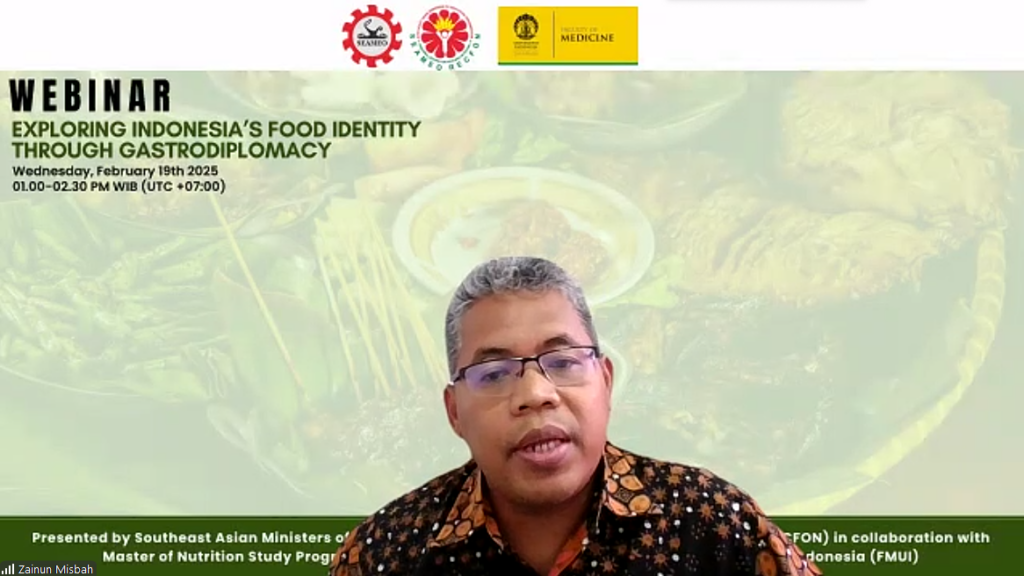
As the speaker, Prof. Agus Trihartono, S.Sos., M.A., Ph.D., from Universitas Jember, explained that Indonesia’s culinary heritage is not merely about food but also an integral part of the nation’s cultural identity that connects Indonesia with the world. Gastrodiplomacy, as a component of public and cultural diplomacy, can play a role in promoting Indonesian cuisine while simultaneously enhancing the nation’s image on a global scale.
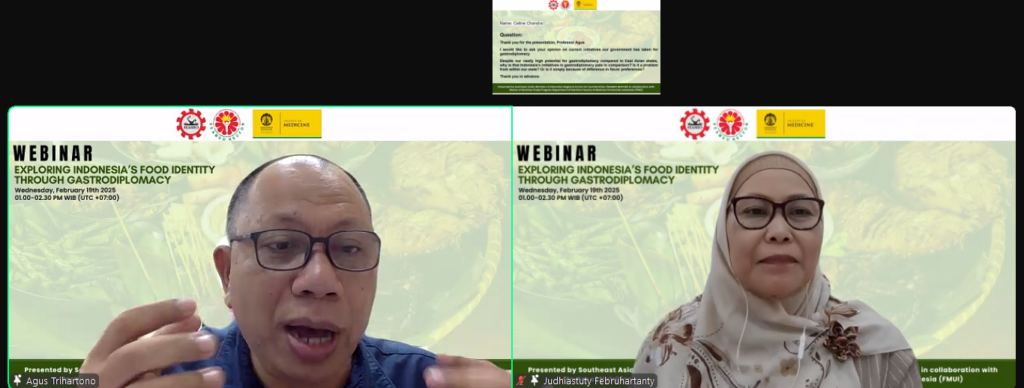
The discussion also explored the history of gastrodiplomacy in Indonesia, which dates back to the era of President Soekarno. During the 1955 Asian-African Conference, Indonesian cuisine was utilised as a diplomatic tool at the dining table. Under President Susilo Bambang Yudhoyono, the “30 Icons of Indonesian Culinary Heritage” programme was introduced to promote the country’s traditional dishes. More recently, under President Joko Widodo’s administration, Indonesia’s gastrodiplomacy efforts have been further strengthened through the “Indonesia Spices Up the World” (ISUTW) initiative, which aims to boost spice exports and establish Indonesian restaurants across various countries.
During the discussion, Prof. Agus also elaborated on the opportunities and challenges in advancing Indonesia’s gastrodiplomacy. Some of the key challenges include the lack of global promotion of Indonesian cuisine, the scarcity of certain spices despite Indonesia being a major producer, and the difficulties in adapting Indonesian culinary standards to international requirements.
Nevertheless, the potential to leverage gastrodiplomacy as a nation-branding strategy remains significant. Food not only conveys taste but also embodies a country’s values, traditions, and history. Moving forward, cross-sector collaboration among the government, culinary entrepreneurs, the Indonesian diaspora, and academics will be crucial in strengthening Indonesia’s gastrodiplomacy, ensuring greater global recognition and appreciation.
